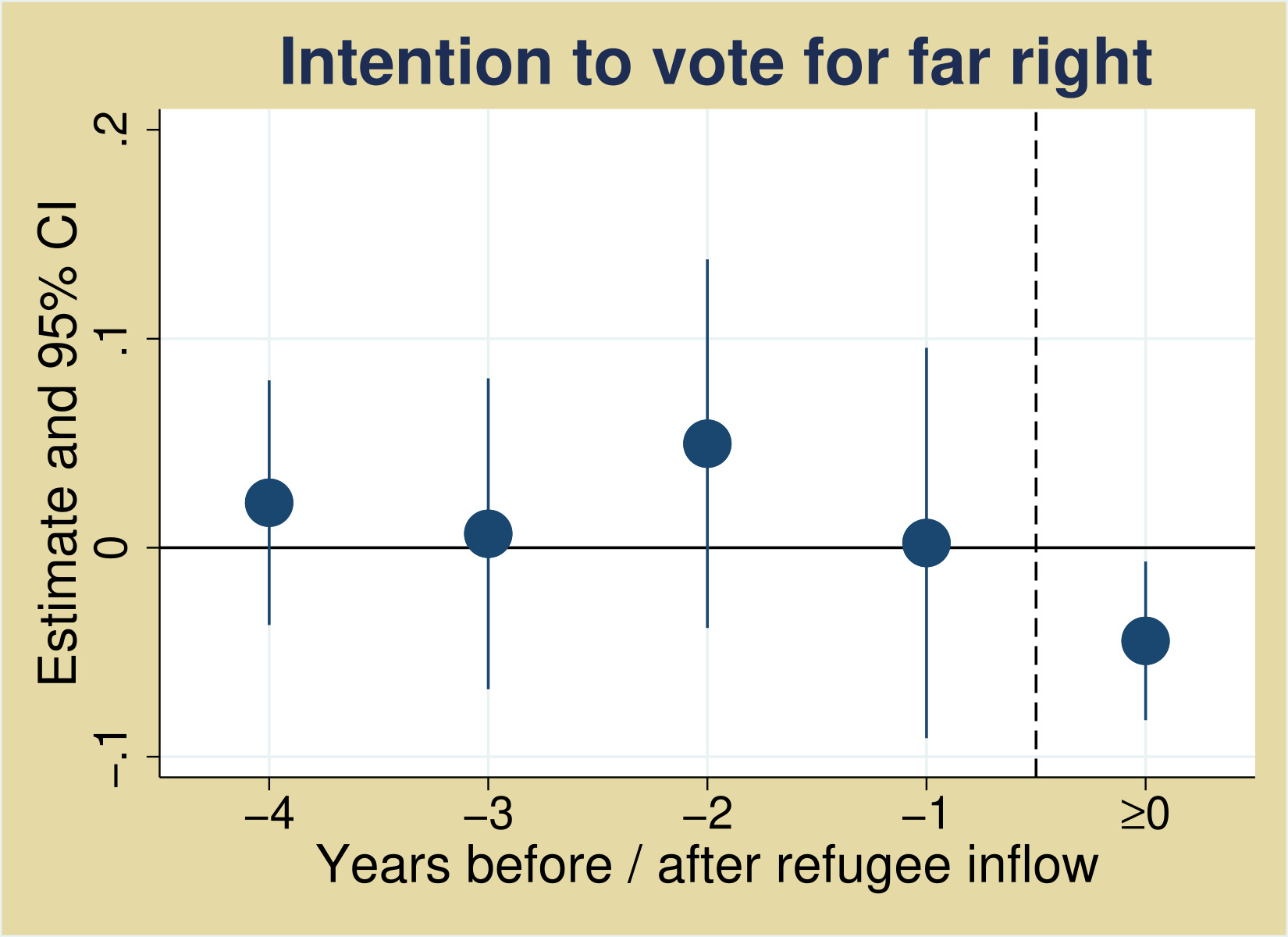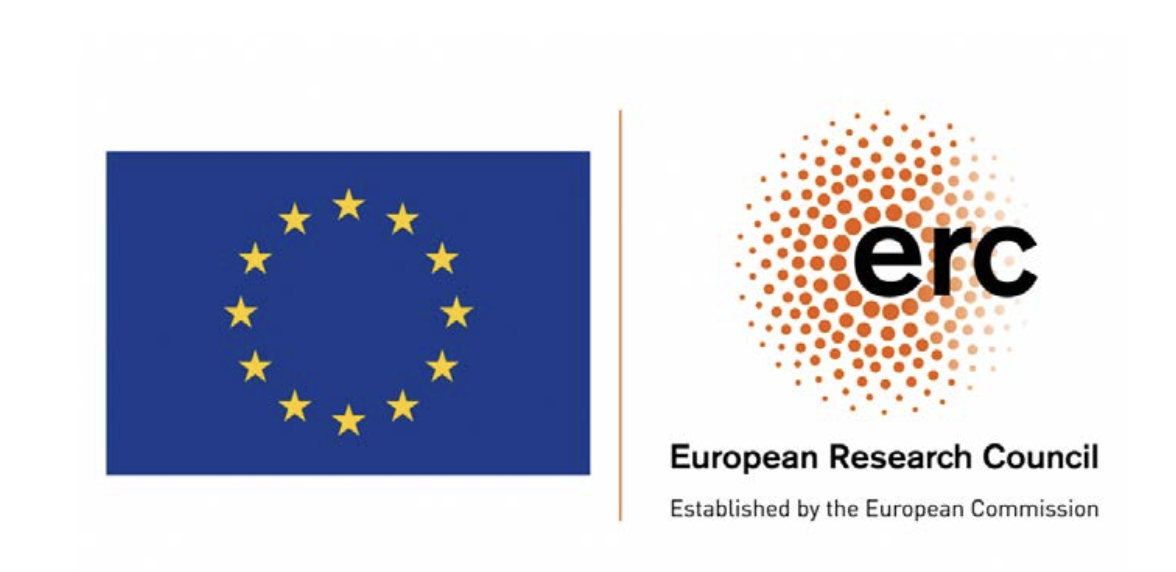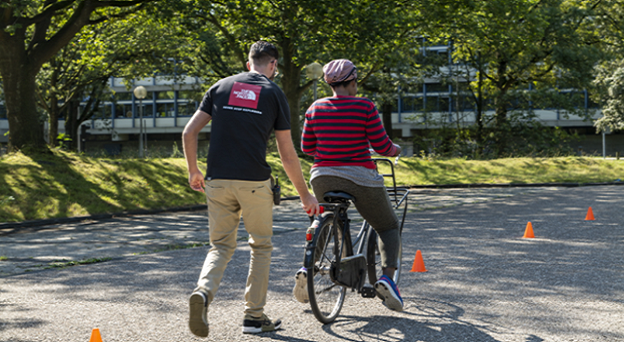Sigrid Suetens, Professor from Tilburg University School of Economics and Management, shows that local exposure to asylum seekers promotes a more positive attitude toward ethnic diversity
People who live near a refugee centre tend to develop a more positive attitude toward asylum seekers than those who live further away. They are also less likely to support anti-immigration parties. This is the conclusion of research conducted by economist Sigrid Suetens and her team. The study suggests this positive attitude results from contact between local residents and refugees.

Learn more: How local residents feel about asylum seekers
The research of Sigrid Suetens and her team is about the question of how local residents think about immigrants and ethnic diversity when they are exposed to ethnic minorities and whether this affects their voting behaviour. The results show that people who live near a refugee centre tend to develop a more positive attitude toward immigrants and ethnic diversity than people who do not live near asylum seekers.
They are also less likely to support anti-immigration parties. The study suggests that this is an effect of the contact between local residents and refugees. Other factors, such as improved employment opportunities or trust in government, cannot explain these results.
The ongoing refugee crisis and changing attitudes
The study is based on data from the period between 2011 and 2016. The researchers concentrated on neighborhoods where there were no refugee centres before 2014. They looked at neighbourhoods where a reception centre was established between 2014 and 2016, and compared these to neighbourhoods where this did not happen.
‘During the period studied an ‘immigration shock’ occurred in the Netherlands and other European countries (the European refugee crisis in 2015-2016 ed.), as a result of which a number of Dutch neighborhoods that had never previously had asylum seekers living in their neighborhood now suddenly saw asylum seekers arriving,’ Sigrid Suetens states. ‘In combination with the fact that our data on attitudes to ethnic diversity and political preferences come from the same set of respondents who answer the same questions every year, means that we can assume that the effect we see is a causal effect. The time period is too short for people to move due to the arrival of the asylum seekers. The effect is therefore not the result of self-selection.’
Conditions and location for refugees
The researchers linked respondents’ answers to specific questions to the locations of the respondents as well as the refugee accommodation facilities. Questions like ‘It is desirable for a society to consist of people from different cultures’ or ‘It should be made easier to obtain asylum in the Netherlands’ were answered more positively by people living close to a reception centre than by people who lived further away, whereas they did not answer the questions differently before the refugees arrived.
The effect is strongly local and depends on factors like the length of the period that the refugees lived in the neighbourhood and the number of refugees. The researchers observed that the positive effect was strongest when asylum seekers resided in the neighbourhood for longer than six months.
The location is also important: the positive impact only occurred due to asylum seekers coming to live in the direct vicinity (with the same four-digit postal code). Just taking up residence in the same municipality is not enough. The study also shows that the positive effect is strongest when the number of asylum seekers is not too large.
How does exposure to asylum seekers affect voting behaviour and more
The study also provides insight into political preferences. People meeting the abovementioned criteria are less likely to vote for anti-immigration parties. In fact, the arrival of refugees reduced the willingness to vote for an anti-immigration party by 4.6 percentage points relative to people who lived in neighbourhoods without refugees. The study also shows that their arrival did not significantly impact residents’ willingness to vote at all. This suggests that factors other than the presence of refugees played a role in deciding whether to vote during elections.
The researchers conclude that local contact with asylum seekers does not necessarily mean that local residents will be more negatively disposed towards asylum seekers or to immigrants in general. The effect does depend on the context. Suetens: ‘If suddenly more asylum seekers take up residence in a place than there are local residents, as happened on some Greek islands, other research has shown that this may evoke strong negative reactions among local residents.’
Suggestions for policymakers: The importance of contact and exposure to asylum seekers
What do the results imply for policymakers? Suetens: ‘Our study emphasizes the importance of positive contact between different communities and suggests that such contact between local residents and refugees can lead to a less negative attitude towards diversity.
During the refugee crisis in 2015-2016, asylum seekers in the Netherlands were mostly accommodated in relatively small reception centres, and much attention was paid to informing and involving the local residents. For policymakers and politicians, it is important to bear this in mind when making plans on where to accommodate asylum seekers.’
The research is based on joint work with Pascal Achard, Sabina Albrecht, Riccardo Ghidoni and Elena Cettolin. Currently, it circulates under the title ‘Local exposure to refugees changed attitudes to ethnic minorities in the Netherlands.’ An earlier version was published as CEPR Discussion Paper 17294, titled ‘The effect of exposure to ethnic minorities on ethnic preferences.’


This work is licensed under Creative Commons Attribution-NonCommercial-NoDerivatives 4.0 International.


